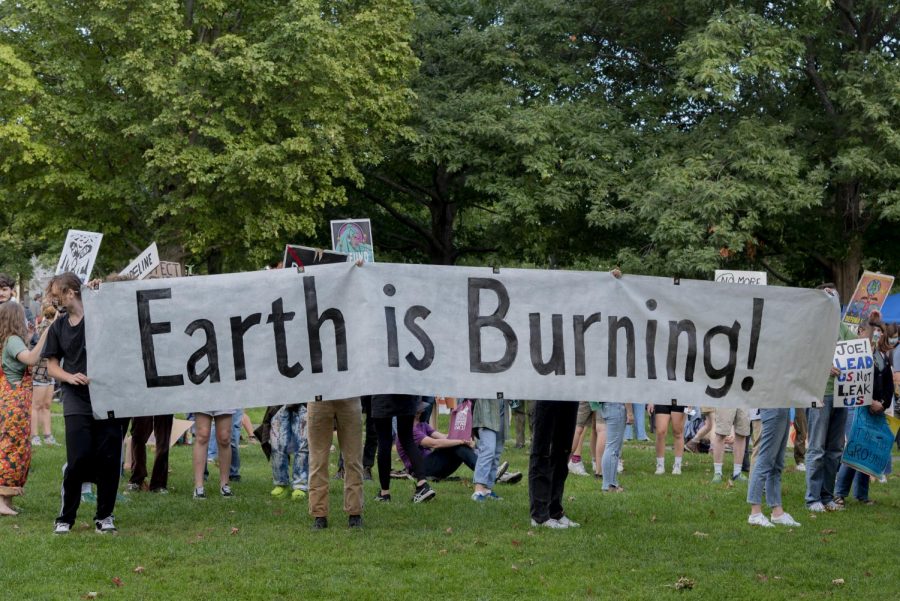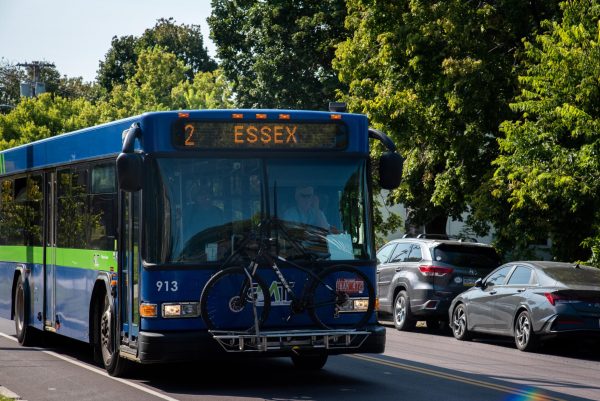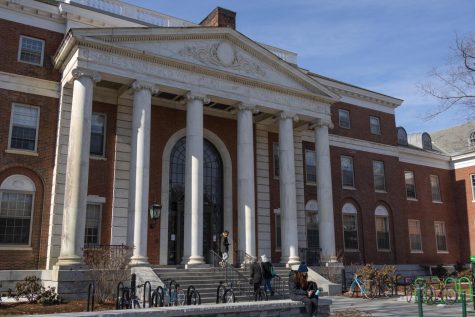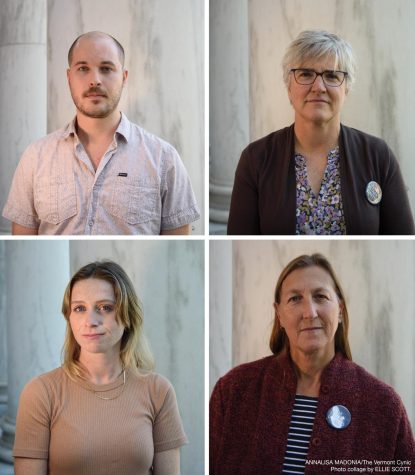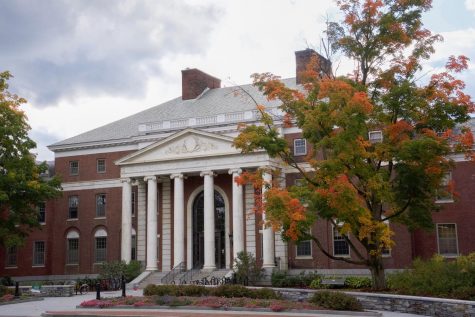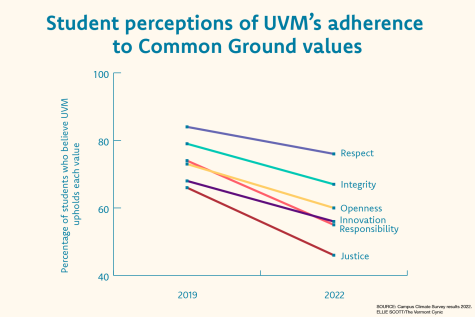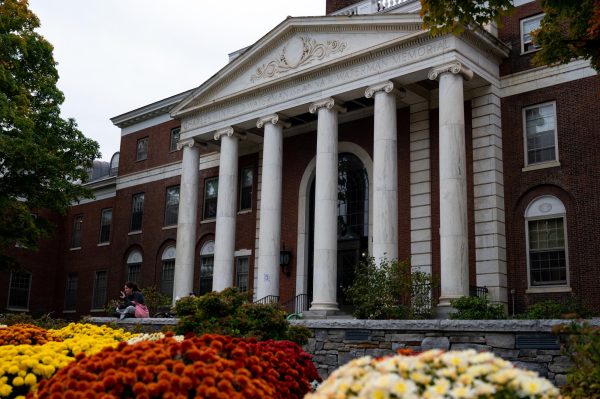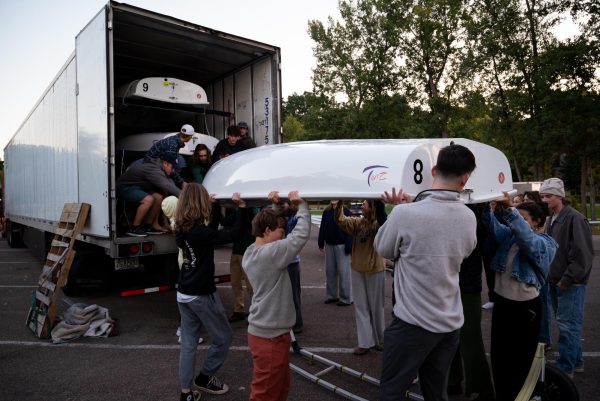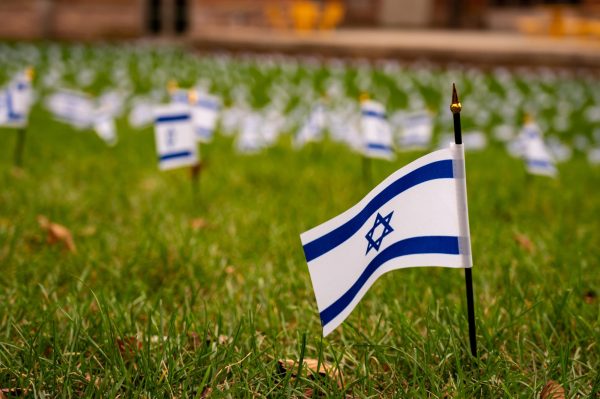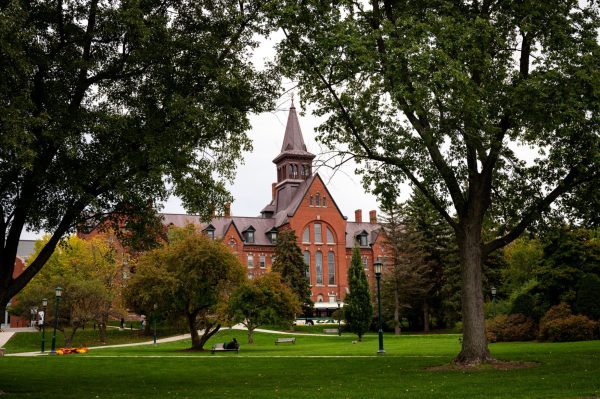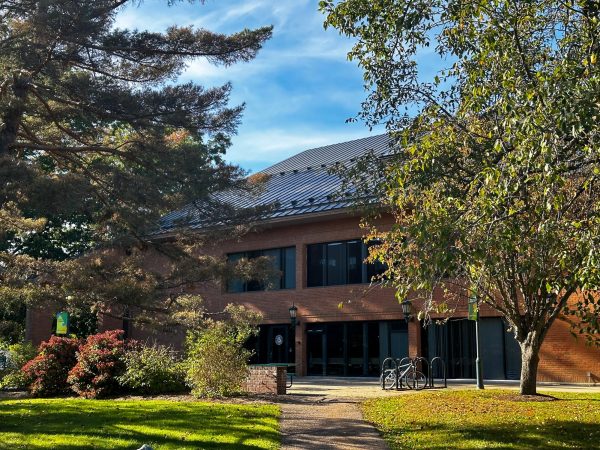Organize UVM draws students out to protest completion of tar sands pipeline
Protestors carry a long banner that states, “Earth is Burning!” Sept. 24.
Organize UVM joined other organizations and activists in downtown Burlington Sept. 24 to protest the controversial proposed Line 3 tar sands pipeline.
Organize UVM formed in 2019 as a collective initiative to address climate change, according to its UVM Clubs webpage. Its first win was the push for divestment from the fossil fuels industry, and the club’s next aim is to get the University back on track with their Climate Action Plan.
UVM students began congregating on the Andrew-Harris green. They coordinated chants, brandished signs and filled out a multi-person black serpent costume – interactive artwork created for the event – to represent the pipeline scheduled to span from Alberta, Canada to Superior, Wisconsin.
The students marched to City Hall Park to join the rest of the protestors. The event drew in a crowd of approximately 200, said Laura Simon, event organizer and martial team member.
The protesters made a stop at TD Bank, the largest financial backer of Line 3 according to the Action Network, and then marched up Church Street to Chase Bank, the world’s top funder of the fossil fuels industry according to a March 24 Morning Consult article.
They wrote chalk messages on the sidewalks and walls of the banks, as a band played to the tune of Solidarity Forever. Protestors then hand-delivered “love notes” into Chase Bank, calling on the banks to stop funding the fossil fuels industry.
The Biden administration backed Trump-era approvals of the construction of Line 3, a project of a Canadian pipeline company called Enbridge, according to a June 24 New York Times article.
“One of the regions they’re cutting across is tribal treaty land, which is a main reason for this activism” said sophomore Matt Hand, treasurer of Organize. “The precedent has been just to ignore the treaties, in most of U.S. history, even though that shouldn’t be the case.”
Indigenous communities have taken up the cause as an environmental justice issue, speaking out against the pipeline, as it goes against government treaties and jeopardizes indigenous land sovereignty, according to the article. It also compromises food water supply safety in the event of an oil leak.
“It’s not a question of ‘if,’ it’s a question of ‘when,’” said senior David Sidelle, president of Organize. “It’s incredibly devastating when that leakage happens.”
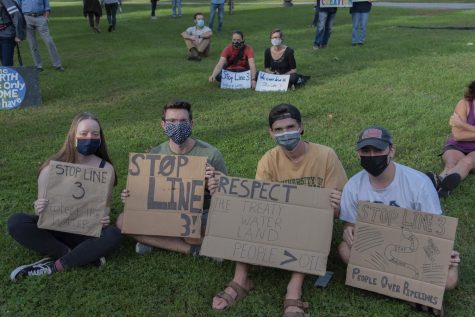
This results from pipeline cuts through waters where wild rice grows, which is an essential part of the Anishinaabe community’s culture and local economies, they said.
Sidelle said he was arrested in Minnesota in June for high risk action while protesting the construction of Line 3, and spent 30 hours in jail with other activists. They had just shut down one of the Line 3 construction sites.
“It definitely made the topic of Line 3 really resonate with me, just seeing all that passion out there and everybody working together on the front lines,” he said. “I thought that there would be a lot of value to having an action like this [march], where people could really feel empowered.”
At Battery Park, the final destination of the route, the sounds of percussion, brass and wind instruments gave way to electronic music bursting from speakers on the stage, where activists and musicians continued to spread anti-pipeline and pro-indigeonus sentiments in speeches and songs.
The Sept. 24 rally also aligned with a global climate strike organized by Fridays for Future – the first global climate strike since the COVID-19 pandemic hit, according to a Sept. 24 Guardian article.

(She/her) Ella Ruehsen is a senior environmental studies major with minors in political science and reporting and documentary storytelling. Before becoming...


